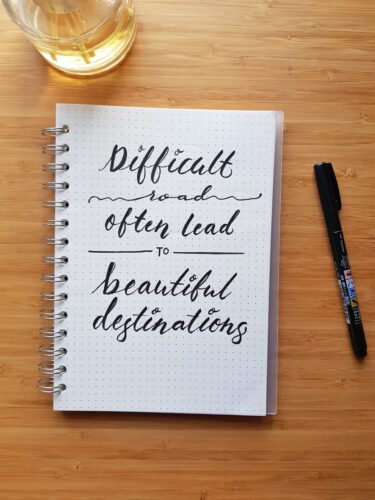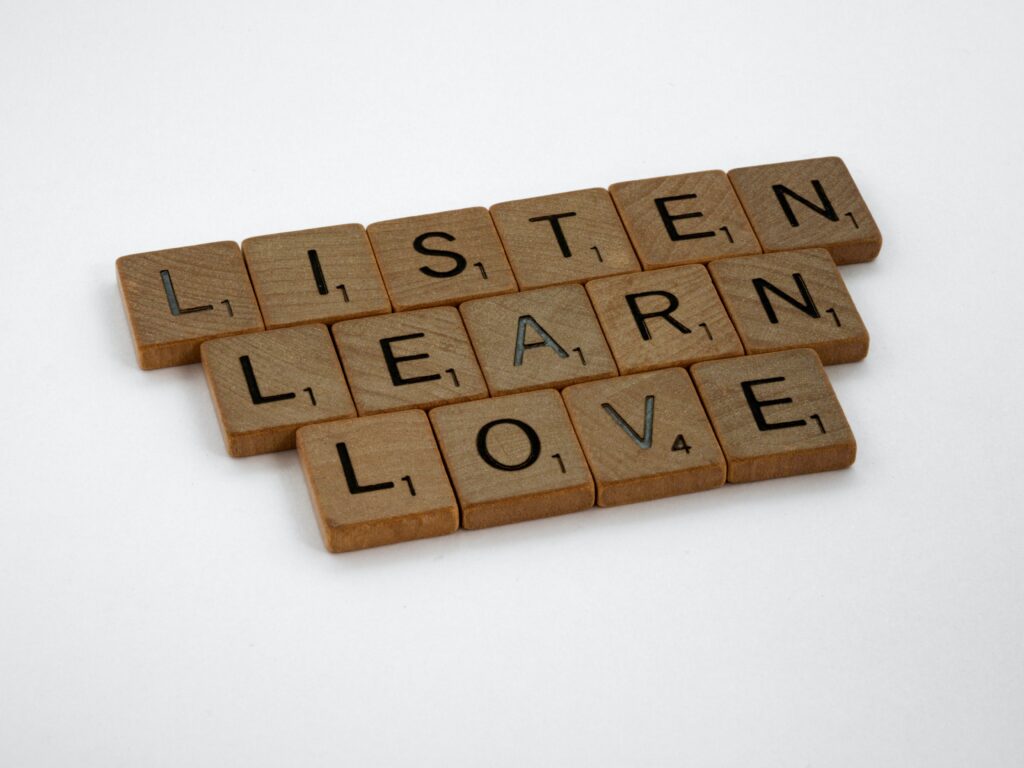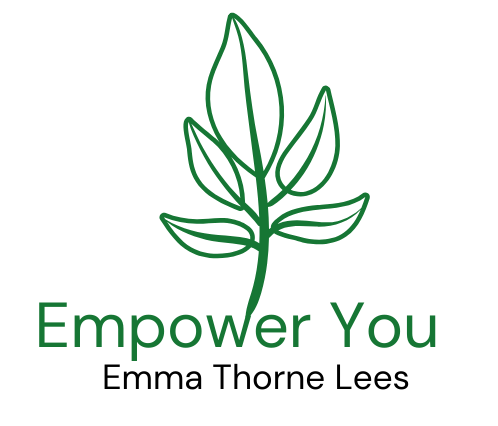Intuitive Eating Journey – Coping with feelings with kindness and without food
Phew, that is a long title!
So, in this post I am reviewing my experience with Principle 7 and what I learnt from my reading and self-exploration this week. If you haven´t ready my first post about ´Coping with your feelings with Kindness´ then I suggest you check it out first. This review is based on my experiences and also working with the Intuitive Eating handbook and the exercises in there. This Principle is basically inviting us to explore how we may have used food beyond beyond a source of nourishment and satisfaction and exploring what is going on and what we truly need, with curiosity and self-compassion.
Sounds simple, doesn´t it?
This invitation to explore requires a lot of patience, self-honesty and reflection, dropping any judgment and purely trying to be an independent observer on what is going on for us.
There are a whole myriad of reasons why we may use food beyond our basic needs of nourishment and satisfaction which the workbook really helps us to explore further.
Self-Care
These days there is so much being talked about in the field of self-care. I often see self-care as ´allowing´ ourselves to eat that bar of chocolate or have that glass of wine because ´we deserve it after a hard day´ or to delight in having a relaxing bubble bath – the ultimate or only option in treating yourself on a daily basis.

The reality is that self-care is different for each of us. But it does involve truly nourishing us, rather than just a band-aid over our emotions. Here are some self-care basics to reflect on:
- Are you getting enough good quality sleep? What would improve your sleep e.g. no devices, exercise, etc
- Do you feel like you have some semblance of balance in your life? For example, is one thing being focused on more than another that you could make an adjustment to (even a small one) to focus on improving that balance in another area. For example, if we are currently not taking breaks from work we may recognise that work has been a focus rather than exercise or connecting with friends – so taking 15 minutes our of our work day to go for a walk, do some stretches or talk to a friend can start to help redress that balance.
- Do you feel that you regularly and adequately nourish yourself with regular and balanced meals and snacks including all the food groups? Do you nourish your body with movement and also your mind?
- Do you feel you are dealing with a particularly stressful event or events or an ongoing sense of pressure or stress? What are some ways you could help manage this level of stress (or drop it altogether if it is self-inflicted), including asking for support?
All of the above can result in overeating and being out of alignment or attunement with our body and mind. So first, before jumping to the conclusion that you are emotional eater consider the above and how you care for yourself.
Next up….
Stealth Deprivation
Although we may have learnt about making peace with food and are aware of this principle, we may still be sneakily depriving ourselves or allowed old habits or patterns to remain or sneak back in.
Are all foods truly equal to you?
Do you feel some are bad or good?
Do you allow yourself to eat whatever you want and whenever you want?
Honestly asking ourselves the above questions allows us to see what is going on and whether we have really made peace with food or are still have one food in dieting or restriction in some way. Remembering that of course, habits and patterns take time and patience to change and a lot of self-compassion thrown in. It may also be worth re-reading ´Challenge the Food Police´.

Emotional Reasons for Overeating
The Intuitive Eating workbook, in particular, provides some really helpful questions and reflections to explore the emotional reasons for overeating. It starts with the pros and cons of using food to deal with our emotions and how prevalent many are in our society. There are a number of emotional triggers for eating emotionally that we may all use on occasion which includ anxiety, boredom, loneliness, reward, stress to celebration or self-soothing. These are all totally normal and can be quite common. By first asking ourselves on what occasions we may turn to emotional eating it helps generate some awareness around this, however small, to give us some space and then slowly start to consider some alternatives.
Again we are invited to get in touch with our feelings and also where we might feel them in our bodies (or mind body connection) as each emotion or feeling is connected to a bodily sensation. For example, I often feel tension or stress in my jaw and/or my shoulders or fear in my stomach. How about you?
Once we start to notice these connections we can identify more easily what triggers us to emotionally eat and if there are any patterns there. For me, I have realised over time and a lot of inner exploration that a lot of my non-hunger eating relates to reward or inadequate boundaries in my world (e.g. people pleasing, feeling responsible for others and putting their needs first) which in turn can lead to me turning to food to deal with the consequences of this instead of dealing with the root of the problem!
Self-reflection
Maybe take some minutes to explore times you have used food to deal with some feelings or emotions that have been hard for you. Once you have identified a few occasions where this has happened see if there are any patterns for you?
Healing from Emotional Eating
Once we are aware of our triggers and patterns we can start to explore alternate ways to cope with our emotions:
- Self-care, nurturance and compassion which includes sleep, sensual pleasure, expressing feelings, intellectual and creative stimulation. What are some options that could work for you? For example, resting, listening to music, reading a book, asking for a hug, journalling a warm bath or hot drink.
- Learning to sit with your feelings – before jumping to food (or anything else that may not serve you e.g. alcohol) when not hungry, try sitting with your feelings for 5 minutes. You could then ask how you feel right now, followed by what you really need in that moment (without turning to food)? It might be connection and the need to talk with someone, relaxation by going out or watching a movie or nurturing which could be a creative pursuit. The more we practice doing a 5 minute time out, the more we can create this space to see what we really need and break the pattern of just reaching for food (when not hungry).
- Helpful distraction – what? I thought we were supposed to sit with our feelings and let them be? Yes, that is an option, but also being both practical and realistic, sometimes we just need a bit of a break from our feelings and to do something else instead whether it is reading a book, going out or doing some exercise. Sometimes making a conscious choice to take a break from emotions is also ok.

Growing our Emotional Muscles!
These alternate choices require us to build our emotional muscle – which is basically slowly and patiently growing our awareness and ability to break a pattern. This obviously does not happen overnight – just like training for a race, we have to build up gradually, it gets easier and we get stronger, over time. Remembering in all this that food is not the devil, it has helped in good times and bad. When we have turned to food it was only because we didn´t know any different – there is no need to add shame or guilt on top, now you are slowly creating a different, more empowering path.
Prevention
Whilst knowing our triggers and looking for ways to deal with them are important, over time we can also explore ways that we can prevent ourselves from turning to food in challenging times.
For example, by being aware that we are about to go to a stressful event or through a tough period we can look for ways to preempt and/or help cope with the situation. For example, knowing that all the family coming to visit for Christmas and that this could be stressful or bring up some old patterns or challenging emotions. What can you put in place to help prevent excessive stress and help reduce the need to turn to food (or anything else) to cope with your emotions? In this instance, some examples may be creating a food preparation rota, having and sticking to your own personal routine or time out, talking to a friend or partner regularly, building in time to be alone to relax, journal, etc. Whatever you need and works for you.

My reflection
The bottom line is that food may have served us as a loyal friend, through good times and bad. However, if we can objectively see that it reaching for food for anything beyond hunger is something we regularly do to help cope with our emotions or a situation, it most likely is not in our best interest. Instead we can look at some alternative ways to explore and sit with our emotions. We may be able to start to see that this habit or pattern we have might be a strange gift for us. At the heart of our turning to food (or anything else that is not serving us) is the gift, if we can patiently start to unwrap the layers to get to the core of what is going on for us we can find what best serves us. Then we can wholeheartedly deal with what we are going through in life rather than adding other problems to the mix or just postponing them to deal with another day (which can often create a vicious circle). If we can start to do this regularly, then food can return to being a source of nourishment and also pleasure that we can fully appreciate and enjoy.

I found the workbook and exercises very thought-provoking and will continue to sit with some of them in the coming days and weeks. Although I wouldn´t say I was an emotional overeater regularly, I am certainly aware of having used food (and alcohol before that) to cope and know how it is keeping me disconnected from my body and what I truly need in that moment. I have noticed just these last few weeks how I occasionally use food to plug a hole that it can never fill. This may be an attempt to quell my fear of starting a new challenge in my life or in hope of giving myself more energy when I am feeling tired. Food doesn´t really serve me in those circumstances, but it is a crutch I have often relied upon.
By expanding my awareness around some triggers and exploring what I really need in that moment I can start to build a repertoir of ´go-tos´ instead of food. For example, for several years now (way before learning about this principle) I know that I turn to carbs when I am tired when a 15 rest, nap or eating a less heavy or carb-dens meal beforehand (particularly at lunchtime) is what I really need instead of (more) carbs. This has taken time, patience and discipline to develop. I know that this ongoing journey is deepening my awareness to other triggers and even subtle ways I use or have used food to deal with my emotions or a difficult situation. Other examples include turning to food as a knee-jerk reactio to an argument with my children or as a means to delay having to do an unwanted job (or reward myself for doing it!) These triggers and patterns may not be resolved over night or even over a few weeks, as we heal in a spiral and go through layers of awareness and healing and over time this deepens.
This is actually deep work, to really get to the root of what we need instead of masking it with food can have a profound and powerful impact in all areas of our lives as we slowly repair our relationship with ourselves and our bodies. We are doing ourselves a great favour in listening, being curious and then responding rather than leaping to may appear as convenient.
What does this principle bring up for you? Do you feel you use food (or anything else) to help cope with emotions or challenges? Have you broken free of the habit? What works for you to sit and deal with your emotions with self-compassion and curiosity? As ever, I would LOVE to hear your comments, feedback, questions or even just say hello (it is so lovely to hear from my readers!)
Thanks for reading and looking forward to connecting next time for Principle 8 – Respect Your Body!
Images: Stefano Pollio, Marek Studzinski, cyrus gomez, Alysha Rosly, Maddi Bazzocco, Natalya Letunova



